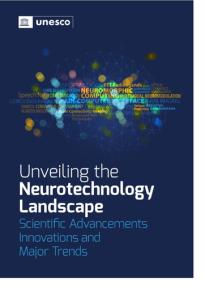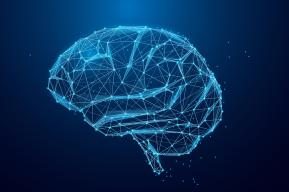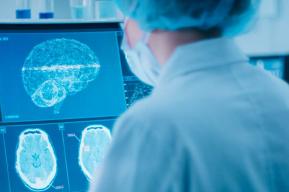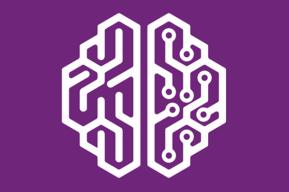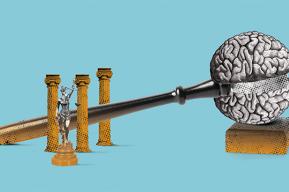
Ethics of neurotechnology
Neurotechnology is a fast-expanding field dedicated to understanding the brain and creating technologies that interact with it.
From bioelectronic medicine that improves the quality of life to brain imaging that revolutionizes our conception of human consciousness, this technology has helped us to address many challenges.
In the medical realm, where neurotechnology has been well regulated, it has led to significant progress in medical treatments. It has proved to have great potential to improve the lives and well-being of people affected by paralysis, neurological disorders, and mental illnesses. It can also treat depression effectively.


UNESCO recognizes its benefits but also the potential ethical issues and problems particularly with its use of non-invasive interventions.
Unlike many other frontier technologies, neurotechnology can directly access, manipulate and emulate the structure of the brain, and with it produce information about our identities, our emotions, our fears.
Combined with artificial intelligence, its resulting potential can easily become a threat to notions of human identity, human dignity, freedom of thought, autonomy, (mental) privacy and well-being.
The fast-developing field of neurotechnology is promising but we need a solid governance framework for non-invasive methods. Combined with artificial intelligence, these techniques can enable developers, public or private, to abuse of cognitive biases and trigger reactions and emotions without consent. Consequently, this is not a technological debate, but a societal one. We need to react and tackle this together, now!


Key data
live with a mental or neurological disorder
Neurotechnology and artificial intelligence
Neurotechnology and artificial intelligence (AI) have become increasingly intertwined. This presents new challenges. Ethical and human rights implications are amplified further by this rapid convergence.
In addition, the worldwide lack of solid governance and regulation in this area is worrisome.

Use of neural data
- Companies can use neural data obtained from non-invasive neurotech devices for marketing purposes. By detecting signals related to our preferences and dislikes, these companies can influence customer’s behavior for profit maximization. This raises alarming questions about surveillance, marketing tactics, and political influence on our most private thoughts and emotions, ultimately threatening our democracies and the foundations of society.
Social inequalities
- The deployment of neurotechnology could also exacerbate existing social inequalities. If access to advanced neurotechnology is limited to the wealthy, it could further increase the gap between this social group and others, whether at the international, national or local level. This can lead to social tensions and conflict.
UNESCO’s Recommendation on the Ethics of AI
together with other existing human rights instruments, constitutes a solid foundation for the development of a global normative framework on ethical governance of neurotechnology (see Policy Area 11 on Health and social wellbeing, para. 126).
IBC Report on Ethical issues of neurotechnology
UNESCO is a leading force within the UN system on neurotechnology.
This Report of the International Bioethics Committee of UNESCO on Ethical issues of neurotechnology reveals the multifaceted impacts of advancements in technologies that “read” and “write” brain activity.
Through investigating the intersection between neurotechnology, ethics and human rights, it identifies fundamental human characteristics and associated human rights that might be challenged by the development of this technology.
The Report puts forth recommendations to stakeholders at various levels, calling upon UNESCO, Member States, the research community, the industry, the media and the general public to take various actions to address the identified challenges and guarantee neuro-rights.

See also
What is at stake?
- Cerebral and mental integrity and human dignity
Neurotechnology offers possibilities to modify the brain, and consequently the mind, in an invasive and pervasive way. Human rights need to be protected, and the value of a person needs to continue to be considered in all circumstances.
- Personal identity
Our personal identity helps us to think and feel for ourselves, regardless of how neurotechnology is applied. But when brains are connected to computers, our personal identity can become diluted, in part because algorithms will help us to make decisions. This can consequently blur the participation of our individual-self. The challenge is to preserve our individual control over decision-inducing neurotechnology.

And also ...
- Freedom of thought, cognitive liberty and free will
Our brain’s activity allows us to have a free will. This is highly connected with our personal identity. External tools that may interfere with our decisions can call into question, or even challenge, our individual free will, and consequently our individual responsibilities. Neurotechnology could affect our brain and thus our freedom of thought, decision-making and action. This could have a profound impact on justice systems and social organizations.
- Mental privacy and brain data confidentiality
When neurotechnology collects our brain data, specific issues can arise. Mental activity is our most intimate part which no one else had access to until now. With the development of neurotechnology, our “thoughts” need to be protected against illegitimate interference. Neurotechnology can acquire a lot of data from our brains and these “private” data need to be protected.





